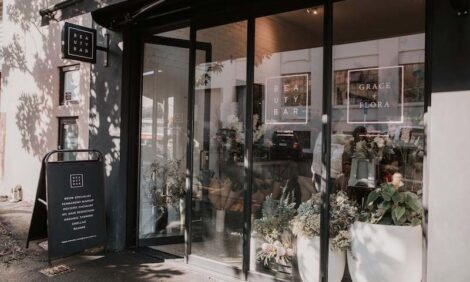
How did Kiwi small businesses respond to COVID-19?

Over the past few months, we’ve seen a raft of innovation amongst Kiwis that has largely been driven by an overwhelming desire to support local small businesses. A new global study shows New Zealand small businesses had the most positive outlook during COVID-19, thanks to the support from their communities. The study, conducted by Forrester Consulting, found 69% of consumers feel proud of the small businesses in their communities and would feel a personal loss if they were to close.
This sense of community and willingness to shop local has been building for the past couple of years, but it was the events of this year that truly brought it out of us. Almost overnight, we saw digital platforms created like Manaaki , delivereat, the ‘Chooice’ Facebook group and SOS Business, that connected Kiwis with businesses in our communities. These enabled people to get free business advice, buy pre-paid vouchers and discover new local products and services.
For those of us who were confined to our houses during the lockdown – many might’ve felt like I did – pretty helpless. I wanted to help small businesses survive this. And it seems this feeling was shared by other Kiwis. Although we virtually stopped spending for the Alert Level 4 lockdown, 57% of NZ consumers anticipated increasing their spending post-covid, significantly more than the average of the five regions surveyed (40%). To me, that is testament to the strong sense of community that is ingrained in Kiwis.
The study identifies six key actions taken by those small businesses who showed resilience, adapting to the changing business environment:
- Offered new products and services
- Engaged with customers in different ways
- Invested in technology to improve operations
- Leveraged support from their ecosystem
- Adopted technology to increase online revenue
- Consulted advisors before making decisions
Moving from in-person services to online products
Charlotte Harrison, owner of The Beauty Bar in Auckland, quickly upped her company’s online game to help the business survive the lockdown. In fact, during COVID-19, 27% of NZ small businesses increased their online marketing engagement through company websites and social media.
Once the first lockdown was announced, Charlotte knew she had to be agile to keep the business running. The Beauty Bar didn’t have a big online presence, but they made sure to get online quickly so customers could find them. They set up an online store through Squarespace’s ecommerce platform to allow them to sell products usually sold in store and send them directly to customers.
Charlotte leveraged support from her ecosystem, working closely with her supplier to introduce ‘at-home’ facial kits, so her clients could keep on top of their skin regime. These included a set of mini products for clients to do their own step-by-step, professional-strength facial at home.
Connecting with clients in new ways
During the lockdown, The Beauty Bar team immediately started touching base with clients to stay connected. They used MailChimp to communicate with their clients – starting up a newsletter, and sending direct emails to let them know about products they could purchase online.
The study found 42% of NZ consumers spent online during COVID-19 compared to 31% in 2019. Those businesses who were able to offer the option of purchasing products and services online were able to bring in revenue this way.
“The emails we sent out inspired a lot of people to purchase pre-paid treatments, gift vouchers, or products. We started using PayPal to take payments through the website, which made it easy for clients to pre-pay for products and services,” says Charlotte.
To minimise physical contact, the business introduced digital consultation forms so clients can fill these out on their phones before their appointment. They are also now taking contactless payments via PayWave, with emailed receipts.
Keeping the ball rolling
Kiwi small businesses have shown incredible resilience this year, leveraging support from Government and community and investing in technology to operate in a changed business environment. But we can’t stop now.
Christmas is just around the corner, so many small businesses will need to be prepared for increased demand. Make sure you’re working with your suppliers to place all necessary orders if you haven’t already. If you are in manufacturing, challenge yourself to look for gaps in your supply chain where you could replace an offshore supplier with someone local.
For consumers, we all need to keep shopping local where we can. The ‘Chooice’ Facebook page features a tonne of awesome businesses offering quality products and services. You’re bound to find the perfect Christmas gift in this local directory. Now is the opportunity to really make a difference to the small business sector by purchasing from local businesses.
Now that the New Zealand election is over, there is less uncertainty about the near future. Be aware of new policies or support schemes that you and your business can take advantage of.
To find out more, check out the global study ‘The Next Chapter for Small Business’ here.
The post How did Kiwi small businesses respond to COVID-19? appeared first on Xero Blog.
Source: Xero Blog






